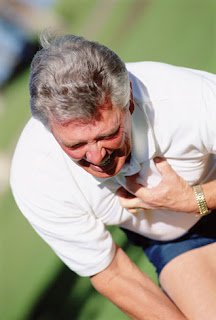
A good night's sleep really is important, and a lack of sleep can actually raise teens' blood pressure and lead to cardiovascular disease later in life, according to the American Heart Association.
A lack of sleep also can contribute to other problems -- from poor skin to irritability.
One report published recently in Circulation: Journal of the American Heart Association, said teens sometimes sleep less because of technology in their bedrooms, things such as computers, mp3 players and cell phones.
Researchers found the odds of elevated blood pressure increased 3.5 times for those with low sleep efficiency and 2.5 times for those with sleeping periods of less than 6.5 hours, even after adjusting for gender, body mass index and socioeconomic status.
Adolescents who have trouble falling asleep or who wake up too early had higher systolic blood pressure compared to children with higher sleep efficiency, the report said.
Researchers say adolescents need nine hours of sleep, and can be helped by having regular sleep and wake times and quiet, dark bedrooms.
Sleep deprivation can also hurt teens' ability to concentrate and problem solve, contribute to acne, lead to aggressive or inappropriate behavior, lead to unhealthy eating habits, and contribute to other illness, according to the National Sleep Foundation.
source: http://www.herald-dispatch.com
 Gel, codenamed BL-1040, which helps to repair heart tissue after damaged in heart attack according to Ben Gurion an Israelian Researcher who developed the gel.
Gel, codenamed BL-1040, which helps to repair heart tissue after damaged in heart attack according to Ben Gurion an Israelian Researcher who developed the gel.
Heart scar tissue may tends to be thinner and weaker than attack occur. As a result the heart has to work harder to function, which can trigger future heart failure.
The gel - derived from an ordinary type of brown seaweed - helps aid regrowth, thickening the tissue and so lessening the risk of a further heart attack.
According to information released about the gel, it helps strengthen the heart by providing the "scaffold" for the tissue to regenerate better.
It is injected as a liquid via a catheter inserted through the groin and turns into a gel upon contact with the damaged cardiac tissue.
Researchers found after six weeks the gel is naturally eliminated from the body.
source: www.telegraph.co.uk
 The University of Warwick researcher published a study in the Diabetes which concludes that a compound called “Sulforaphane” found in broccoli and other vegetables which have protective benefits for blood vessel damage caused by high glucose levels in Diabetics.
The University of Warwick researcher published a study in the Diabetes which concludes that a compound called “Sulforaphane” found in broccoli and other vegetables which have protective benefits for blood vessel damage caused by high glucose levels in Diabetics.
Diabetics have a 5 time increased risk for suffering a heart attack, stroke or cardiovascular disease mostly because of the damaged blood vessels. Other researchers have found a reduced risk of heart attacks with brassica vegetables. Kale, Cabbage, Broccoli, Cauliflower, Kai-lan, Brussels sprouts are some of the more common vegetables in the brassica vegetables.
The researchers believe that the sulforaphane causes a protein called nrf2 to become activated which then protects cells and tissues from incurring damage because it in turns activates protective antioxidants and detoxifying enzymes.

In the case of rheumatoid arthritis, this means painful inflammation and progressive damage to the joints, eased only slightly by courses of painkillers and immune dampening drugs.
The precise trigger for these attacks is not known, but the latest technique, so far tested only on cells in the laboratory, aims to "reset" the immune system back to its pre-disease state.
These cells are then injected back into the joint of the patient.
Professor John Isaacs, who is leading the research, said: "Based on previous laboratory research we would expect that this will specifically suppress or down regulate the auto-immune response."